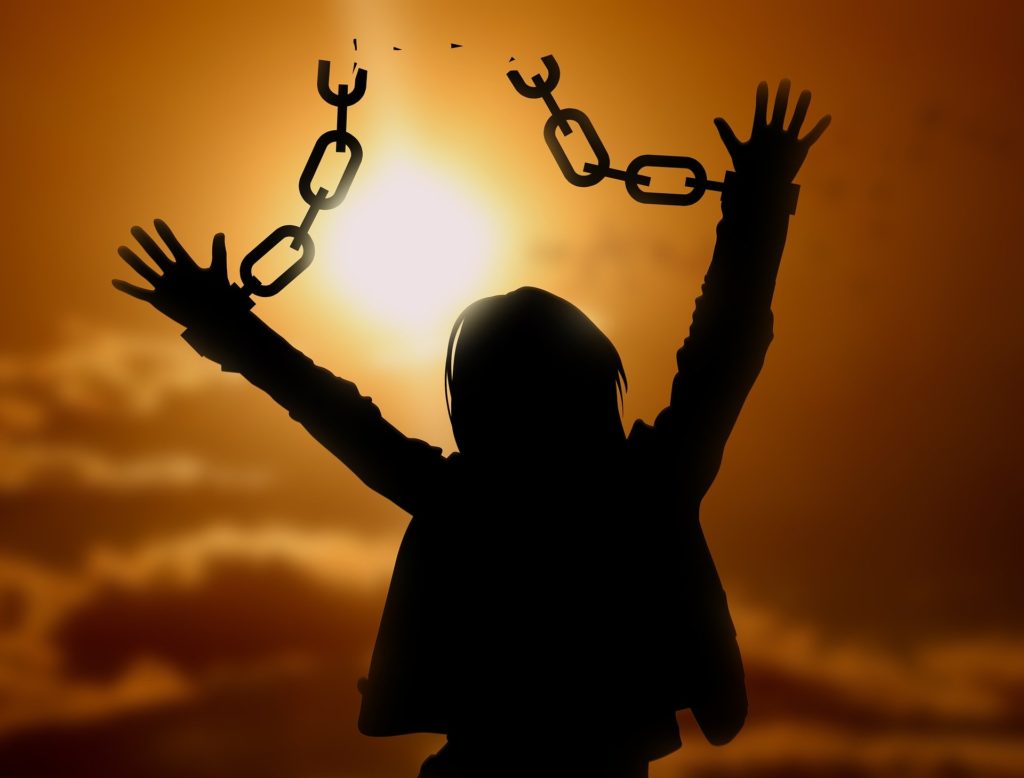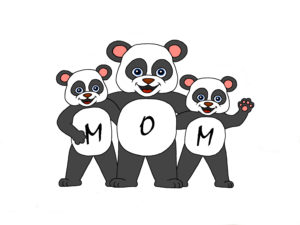
There is nothing like parenthood to emphasize how much we are becoming like our parents as we get older. I remember making a comment about my daughter, and as I was speaking, I knew that the words were exactly some that my mother would have said. Then as soon as I had finished saying them, I wondered why I had even said that. Those words did not reflect, even remotely, the way I generally think and feel. It was shocking to realize how deeply the things we hear as a child can persist even if we don’t want them to. They are like the weeds in my flower garden. If I don’t keep plucking them out, root and all, they will grow up right next to the beautiful flowers I spend time cultivating.
The impact our parents have on us is huge. Study after study shows that kids who experience neglect, abuse, and abandonment are more likely to subject others, particularly their kids, to those same behaviors. In many cases, the adults perpetuating those damaging behaviors do not realize what they are doing or they lack the skills needed to correct their own actions.
Sometimes when people get older, they recognize their past mistakes and feel remorse. My mother, for example, has apologized and said she just did the things she learned when she was growing up and never really thought about it until after it was far too late to fix anything. Instead of doing what she really wanted, she acted out of learned patterns and instincts. Many potential reasons for this have been suggested, and I suspect there are combinations of factors involved for most people. Whatever the reasons, the net result is that we often do exactly what we were taught to do, even if it will produce unwanted consequences.
As a result, the things parents teach their kids are passed from generation to generation whether good or bad. In the case of hurtful actions, the damage passes down until someone decides to break the pattern. I believe that the vast majority of people would never want to hurt another person the same way they have been hurt, but that is exactly what happens. I also believe that these bad patterns do not have to be perpetuated. We can be better parents than the ones we had, and you can see cases where that occurs. Sometimes an abused kid decides not to become an alcoholic like his dad or a neglected kid realizes that she needs to give her kids the attention and love she didn’t receive.
For me, the key was to have a plan. That’s tricky because every kid is unique and every parent is unique. The dynamics of relationships can not be predicted, and they change constantly as we all learn and grow. While some parenting books can be helpful, there is no comprehensive manual for how to navigate parenthood in light of the complicated dynamics. So when I thought about my parenting plan, I tried to remember the things from my childhood that had especially long-lasting effects or that undermined my developing self-confidence and decided to target those behaviors. The main things that I identified were: being disciplined out of frustration and anger, having my perspective devalued, never hearing my parents say sorry, and lack of rational conversation. I will do posts on each of these topics individually, but here I’ll talk about them in more general terms just to emphasize my process.
The first and biggest thing I wanted to change was how to do discipline. I experienced discipline from a place of anger and frustration. What I mean by that is my parents had a tendency to yell and spank without really imparting a lesson. As a result, I learned fear and unquestioning obedience when what I really needed was to be taught about appropriate behavior, learn respect, and have questions answered. In order to change the pattern, I understood that I would have to learn to control my temper and think about effective discipline, or I was likely to follow suit. I learned to take those deep breaths everyone talks about and give myself a little time to react. Admittedly, these few sentences make it sound easy. In reality, the concept is amazingly simple, but the application is exceptionally challenging. It has taken awareness and thoughtfulness to make this change because I have to reign in my temper, and that is not an easy task.
I was fairly young when I stopped asking questions of my parents. Frequently, the response would be along the lines of either: “You are just a kid, so you don’t understand.” or “Well, life isn’t fair.” Both were very devaluing. The first essentially meant that my perspective as a kid was not valid, so my question was not worth answering. The second meant that my parents had no intention of being a safe haven from the big, bad world, and I could not expect fair treatment from them. I felt very alone and as though my thoughts and feelings did not matter, something I do not want for my kids. It occurred to me that it is important to recognize that they are individual people. They may be small, lack maturity, and dependent, but they have their own unique thoughts and feelings, and they deserve to matter. So I decided to listen, answer their questions, and be a safe place for them. Yes, I do have to explain that the world isn’t fair and that sometimes they don’t understand, but they can feel loved and safe in the process.
When I was growing up, sorry seemed to be a dirty word in the house. Mistakes were harshly punished and never admitted. Growing up in an environment where perfection was expected and where adults were correct by virtue of being ‘older and wiser’ was, to put it mildly, very stressful and hurtful. The obvious lesson for me was that it is important to take responsibility for my mistakes and to apologize to the kids when I get something wrong. Of course, this is essential for any good relationship, not just in parenting. Unfortunately, people don’t like the taste of crow, and it is even harder having grown up feeling like mistakes are unacceptable. It has been a process, but I tell the kids that I am not perfect, and I focus on helping them see that mistakes are learning opportunities as opposed to being shameful and devaluing.
I often heard the phrase: “because I said so.” Now, I know this one may not seem like a very big deal, but I think it can be, especially if it is the default answer to questions kids ask. My parents issued commands and made decrees that didn’t make sense to me at all, and since I was unable to ask questions, I became very rebellious. Fortunately, I am the kind of person that doesn’t like trouble, so my rebellion was generally the quiet variety. In all honesty, I feared my parents but had absolutely no respect for them, the the concept of meaningful communication was entirely impossible. In looking at this, I knew I wanted much better communications with my kids, so I decided to avoid the “I said so” explanation as often as possible. This means that I started explaining rules and requirements to my kids when they were still very little. They did not understand everything by any means, but they did know that they could ask questions and receive explanations. I am not under any delusions that this will stop all rebellion in its tracks, but my goal is for them to learn respect, ask questions, and to think rationally and independently. There are definitely moments when I wish they were not so inclined to ask questions because I get stressed and don’t always feel able to dedicate the time to answering them. I have told them they need to be a little older before they are ready for an answer, and I have told them I don’t have time to answer at that moment. However, I will always make an effort to get back to the question. I prefer they get their information from me than from friends or the internet, anyway.
Overall, it seemed that I could choose between parenting based on my past experiences or with thought about what I wished to accomplish as a parent. I’m sure it is clear from my descriptions that it is not the easiest process and requires a thoughtful plan before you really need it. When you are angry, frustrated, confused, and stressed, it is easy to be reactive and hard to be rational and see the larger end goal. The forethought and work are definitely worth it, though. Once the stressful situation dies down, you will know you are working to build your kids up instead of making life harder for them. This in itself can bring a world of peace to your life as a parent.
As always, I would love to hear your thoughts and experiences. Please feel free to comment below or email me at thepandemonimom@gmail.com.


Recent Comments